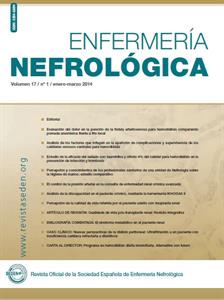Contenido del artículo principal
Resumen
Una de las particularidades que desarrolla el síndrome cardiorenal (SCR) es un círculo en el que como consecuencia del bajo gasto cardíaco hay alteración en el equilibrio del óxido nítrico y en la liberación de la hormona antidiurética, entre otros; la inducción a la vasoconstricción renal y el aumento en la reabsorción en el túbulo proximal de agua y sodio reduce el aporte de agua y sodio al nivel del túbulo distal, lo que provoca la disminución en la diuresis del péptido natriurético y aumenta la sensibilidad a la acción de la aldosterona (secretada por las glándulas suprarrenales) que actúa en la conservación del sodio y secretando potasio e incrementando la presión sanguínea). Esto explica que en los pacientes con insufi ciencia cardíaca (IC), una de las características más evidentes es la hipervolemia y la retención de sodio. Datos recientes apoyan que, en el SCR, la retención de líquidos, de sodio y la posterior resistencia a los diuréticos, provocan una sobrecarga progresiva del volumen y empeoramiento de la IC, con reducción de gasto cardíaco y mayor disfunción renal. En consecuencia, se genera una situación con mal pronóstico y pocas opciones alternativas.
Palabras clave
Detalles del artículo
Aviso de derechos de autor/a
© Los autores ceden de forma no exclusiva los derechos de explotación de los trabajos publicados y consiente en que su uso y distribución se realice con la Licencia Creative Commons Atribución - No comercial 4.0 Internacional (CC BY-NC 4.0). Puede consultar desde aquí la versión informativa y el texto legal de la licencia. Esta circunstancia ha de hacerse constar expresamente de esta forma cuando sea necesario.




